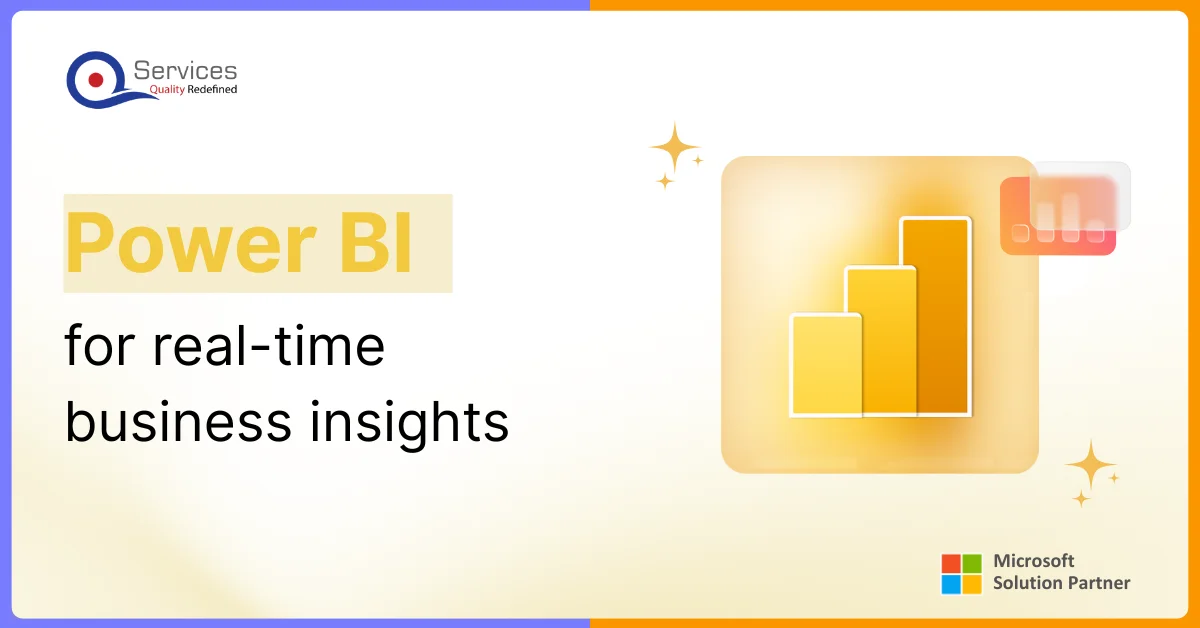
Home » Choosing the Right Database: Google Cloud Firestore vs. Azure Cosmos DB

Choosing the right database is quite challenging because of so many available options. Each database comes with its own set of features, pricing models, and performance characteristics, so it’s easy to get overwhelmed. Whether you’re building a real-time app, need global data distribution, or are thinking about long-term scalability, it’s important to match your database to your specific needs.
In this blog, we’re going to get into a detailed cloud database comparison of two major players in the NoSQL space: Google Cloud Firestore and Azure Cosmos DB. We’ll cover everything you need to know—from their features and pricing to performance, scalability, and use cases—so you can make an informed decision about which one is the best fit for your next project.

NoSQL databases are super flexible and can handle all sorts of data types that traditional databases can’t. They don’t have fixed schemas, so you can store unstructured or semi-structured data easily. Plus, they scale horizontally, meaning they can manage huge amounts of data across many servers.
Google Cloud Firestore is a scalable NoSQL database from Google Cloud Platform, designed for mobile, web, and server development. It’s perfect for mobile, web, and server apps that need real-time updates and offline capabilities. Firestore keeps your data in sync across all devices instantly and supports complex transactions to ensure data integrity. Plus, it integrates smoothly with Firebase and other Google Cloud services in order to build and scale apps efficiently.
Here are the Firestore Features:
Firestore keeps all your data updated across all devices instantly. So, if someone changes a document, everyone else sees the update right away. This is great for apps like chat or collaboration tools where you need live updates.
Even if your app loses internet connection, Firestore still works. Users can keep working offline, and once they reconnect, Firestore syncs all the changes automatically. This ensures users have a smooth experience no matter what.
Firestore supports ACID transactions, which means you can do multiple operations in one go, and they either all succeed or none do. This keeps your data accurate and consistent, which is important for complex tasks.
Firestore works seamlessly with Firebase and other Google Cloud services. This makes it easy to add features like user authentication, analytics, and cloud functions to your app, all within the same ecosystem.
Firestore is perfect for online and mobile apps that need real-time updates and offline functionality. Consider content management systems, messaging apps, and social media apps.
Apps that require real-time collaboration, like document editors, project management tools, and shared whiteboards, benefit hugely from Firestore’s real-time sync and offline support.
Azure Cosmos DB part of Azure NoSQL Database is a super flexible, globally distributed database service from Microsoft Azure, designed for high availability, low latency, and scalability across multiple data models like document, key-value, graph, and column-family.
There are significant Cosmos DB features such as:
When we talk about Cosmos db various features, Multi model support is one major feature of it. Supporting different data sources such as document, key-value, graph, and column-family, allowing you to choose the best model for your specific needs.
It can replicate your data across multiple global regions, ensuring high availability and low-latency access no matter where your users are located. This makes it perfect for applications with a large, distributed user base that require fast, reliable performance around the world.
Cosmos DB offers five consistency levels (strong, bounded staleness, session, consistent prefix, and eventual). This lets you balance between consistency and performance based on what your app needs.
Cosmos DB provides a comprehensive Service Level Agreement (SLA) covering availability, latency, throughput, and consistency. This guarantees predictable performance and reliability, which is critical for mission-critical applications.
Scalability in database is one of the most significant features of Cosmos DB. It is designed to scale horizontally and can handle large amount of data by adding more servers. This ensures your application can grow without performance issues.
Cosmos DB is perfect for Internet of Things (IoT) applications that need to handle real-time data from a large number of devices. Data is available from anywhere thanks to its wide dispersion and great availability.
Apps that perform real-time analytics, like fraud detection systems, recommendation engines, and monitoring dashboards, benefit from Cosmos DB’s low-latency data access and multiple consistency levels.
Cosmos DB’s scalability in databases, global distribution, and extensive SLA can be used by e-commerce platforms that must manage enormous transaction volumes and offer a flawless shopping experience in order to guarantee excellent performance and dependability.
Get free Consultation and let us know your project idea to turn into an amazing digital product.
 Firestore Security
Firestore Security

Both Google Cloud Firestore and Azure Cosmos DB are strong contenders, but the best choice depends on your business needs. Firestore is fantastic for real-time, mobile-first apps that need to integrate smoothly with Firebase, making it a breeze to use.
On the other hand, Cosmos DB is considered as a top choice for globally distributed applications, capable of managing large-scale workloads and providing flexibility with various data models. From a business standpoint, consider whether your app needs real-time data synchronization and ease of use, or if it demands robust global scalability and support for diverse data models. Choose the one that aligns best with your business goals and application requirements!

Our Articles are a precise collection of research and work done throughout our projects as well as our expert Foresight for the upcoming Changes in the IT Industry. We are a premier software and mobile application development firm, catering specifically to small and medium-sized businesses (SMBs). As a Microsoft Certified company, we offer a suite of services encompassing Software and Mobile Application Development, Microsoft Azure, Dynamics 365 CRM, and Microsoft PowerAutomate. Our team, comprising 90 skilled professionals, is dedicated to driving digital and app innovation, ensuring our clients receive top-tier, tailor-made solutions that align with their unique business needs.

The way small and medium-sized businesses (SMBs) operate has changed more in the past five years. Traditional systems that once felt reliable are now holding teams back. Data lives in silos, processes rely on too much manual work, and the cost of maintaining legacy servers keeps growing. So how do businesses modernize without disrupting what’s already working?

The oil and gas industry works in some of the most challenging and most demanding environments on the planet. From offshore rigs to large refineries, the machinery and infrastructure that powers this sector is extremely important for the global energy supply chain. However, equipment failures can lead to costly downtime, security risks and environmental hazards

This blog discusses how generative AI can be combined with MongoDB to turn the risk management in finance into an intelligent, streamlined, and scalable practice.
Firestore is a serverless, NoSQL document database optimized for real-time updates, while Cosmos DB is a globally distributed, multi-model database that supports document, key-value, graph, and column-family data models.
Firestore provides strong consistency by default. Cosmos DB offers five consistency levels: strong, bounded staleness, session, consistent prefix, and eventual.
Azure offers several NoSQL database options, including Azure Cosmos DB, Azure Table Storage, and Azure Blob Storage.
Firestore integrates seamlessly with Google Cloud services and Firebase. Cosmos DB integrates well with Azure services and supports multiple APIs (SQL, MongoDB, Cassandra, Gremlin, Table).
Firestore uses a SQL-like syntax for querying documents. Cosmos DB supports SQL for querying JSON documents, as well as other APIs like MongoDB, Cassandra, Gremlin, and Table.
Cosmos DB has a robust community, comprehensive documentation, and support from Microsoft Azure.
Firestore supports offline data access by caching data locally on the client device, allowing read and write operations even when offline.
Cosmos DB does not natively support offline data access, but you can implement offline capabilities using client-side caching and synchronization mechanisms.
Firestore handles large-scale data ingestion through automatic scaling. Cosmos DB handles it with provisioned throughput and horizontal scaling across regions.
Firestore automatically indexes all fields in documents, with options for custom indexing. Cosmos DB provides automatic indexing with customizable indexing policies.
Firestore has a strong community through Firebase, extensive documentation, and support from Google Cloud.
Firestore supports data migration through import/export operations and third-party tools. Cosmos DB offers data migration tools like Data Migration Tool and Azure Data Factory.

Founder and CEO

Chief Sales Officer
